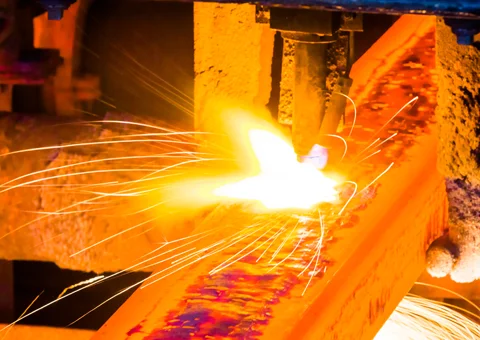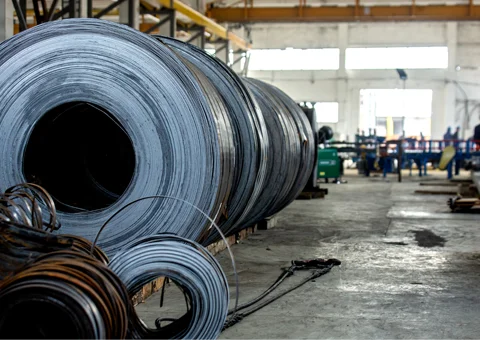NEW DELHI, July 31 (Reuters) - India's federal Ministry of Steel has asked the trade ministry to investigate cheaper steel imports from China and Vietnam, a government source directly aware of the matter told Reuters on Wednesday, as New Delhi grapples with rising imports.
India, the world's second-biggest crude steel producer, turned net steel importer in the fiscal year through March and the trend continued with finished steel imports scaling a five-year high in April and May, according to provisional government data.
"We have said that the trade ministry should investigate these imports and offer its recommendations to the finance ministry, which will take the final call," the source told Reuters, declining to be identified as the discussions are not public.
India's steel and trade ministries did not immediately respond to emails from Reuters seeking comments.
Last week, India's JSW Steel (JSTL.NS), opens new tab told Reuters that the steel industry was in talks with the federal government for trade measures to combat rising imports, particularly from China and Vietnam.
The source added that the steel ministry had urged officials from the European Union not to impose higher taxes on its carbon-producing industries in a meeting two weeks ago.
Reuters on July 29 quoted a top official as saying India had not accepted an EU proposal to levy higher taxes on its carbon-producing industries.
The EU last year approved the world's first plan to impose tariffs on imports of high-carbon goods, including steel, aluminium and cement, part of its aim to reach net-zero greenhouse emissions by 2050.
Separately, the steel ministry is in talks with mills to diversify imports of coking coal, a key steelmaking raw material, from countries including Russia, Canada and the United States, the source said, as the country tries to cut its reliance on Australia, its biggest supplier.
Indian steel companies consume around 70 million metric tons of coking coal annually, and imports constitute around 85% of the country's total requirements.

